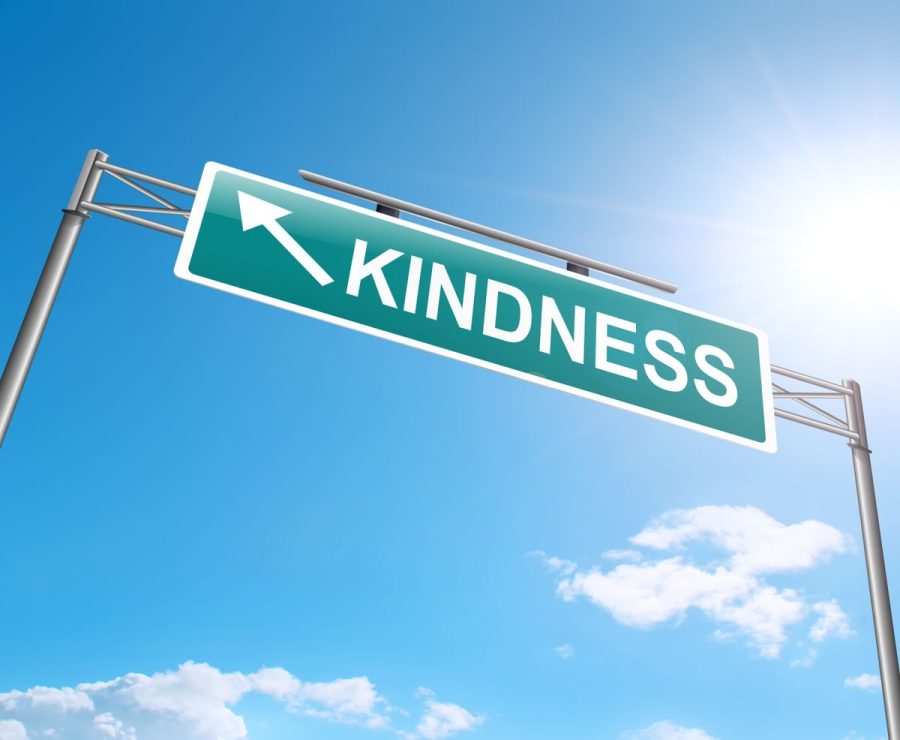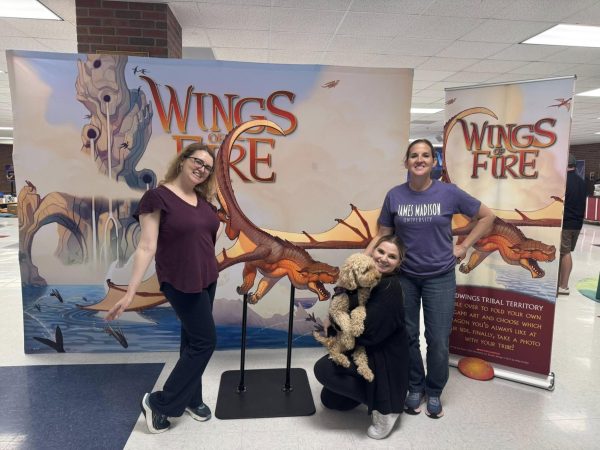Anti-Bullying Month Places Focus On Kindness and Awareness
“I think the saddest people always try their hardest to make people happy. Because they know what it feels like to feel absolutely worthless and they don’t want anybody else to feel like that.”- Robin Williams
Along with Halloween, October brought along something else of great significance: Anti-bullying month. With the hope of spreading awareness about the harms of bullying, the entire month has been dedicated to the purpose of creating a safe, kind world for future generations.
Here at Osbourn students and adults were encouraged to show solidarity by wearing blue. Blue was chosen because in many cultures it is said to bring peace. The color also conveys importance and confidence. The one organizing these activities to promote this month is the cosmetology teacher, Ms. Dotivala.
“Bullying isn’t something we can’t get rid of entirely, but it’s something that we can speak up about,” said Ms. Dotivala.
The thing about bullying is it creates long-lasting effects on those who have experienced it. It is a spectrum of various levels and forms which can make some hard to identify or cope with.
“Bullying doesn’t come in just a verbal form; there are many forms but the one mainly used now is cyberbullying. It happens so often that it’s just so normalized. Regardless it’s a form of bullying,” added Ms. Dotivala
Cyberbullying is using online resources to insult those with the protection of a screen and anonymity.
Other forms of bullying may include gossiping, physical violence, or peer isolation. There is this belief that bullying is just saying something cruel to someone but that is simply not true. It is the repetitive action of making someone feel unsafe or uncomfortable.
Bullying can affect people’s everyday lives. Many people who are routinely or habitually bullied for years on end can often respond by bullying other people or bullying themselves. It affects the way people view themselves and lowers their self-esteem. Even with the belief that a bully’s words are untrue they still hold weight.
“Throughout elementary and middle school I was picked on for my style, the way I talk, and overall just being kind of a weird kid. Even my friends would say things that would harm the way I viewed myself because they didn’t understand the depth of their words,” said 12th grader Jillian Sorrell.
This month is so much more than just the kids who purposefully are unkind and hateful; it is a reminder to take responsibility for our choices and the way they can make others feel.
“I believe this month is beyond important because it brings awareness to how impactful our words can be. I spent years feeling alone and changed who I was due to bullying. I wish that no one would have had to feel that pain but this is at least a step towards a better future,” added Jillian.
Unfortunately, bullying is not a unique experience anymore. Pacer’s National Bullying Prevention states that one out of every five students reports bullying. That is not to consider all of those who do not speak out about their mistreatment.
“I was bullied throughout 4th and 5th grade. It kept going throughout middle school, but it didn’t bother me as much as before since I didn’t care anymore. It was still hurtful to hear though, it really changed how I viewed myself, even to this day,” said 11th grader Mackenzie Ferman.
The things you may say carelessly to someone in a second of hurt can live with them for years.
“I think bullying is a way of spewing hate on someone that doesn’t deserve it and it can affect them in a really negative way,” said Maya Lucero.
“Bullying has affected me by making me insecure about myself. When I was younger I was bullied for not speaking English and just in general for talking, and it left me marked. It changed the person that I was before and I shut down and stopped talking like they wanted me to,” added Reyna Amaya.
As hard as it is to believe sometimes, you are not alone. Teachers and staff are here to listen; some of them with similar experiences.
“Bullying is an unacceptable, but common high school experience. I experienced a fair amount of bullying in high school and so did a lot of my friends. For those around me, it increased their mental health issues, caused truancy, and made school an unsafe place to be for them. Being a part of a minority group and experiencing my fair share of assault, made me more compassionate and empathetic towards all people and hyper-vigilant in shutting down bullying when I see it occur,” said Mr. Kite.
They may not be able to fix the problem but you can feel free to confide in an adult you trust on campus, chances are they understand what you are feeling.
“I was picked on for a lot of reasons, all the things that felt like everything then, but seem so silly now. I think it has made me more empathetic to everyone and more thoughtful about the way I speak to others because I would never want anyone to misconstrue it as being unkind. I try to also imprint that on my students as well,” said Mr. Harrington.
It is also important to keep in mind that handling bullying is not all on those who are on the receiving end. Dealing with bullying is something that a kid won’t and shouldn’t always know how to do properly. That is why it is crucial to reach out to someone. Whether it is a personal experience or one of a peer, don’t internalize the bullying; get help.
“There are more people than you probably know willing to help,” said Mr. Harrington.

Hi I'm Alexis. I am 12th grade. I hope to write about mental health issues.







Jacquiline Biddier • Nov 11, 2022 at 12:24 pm
Bullying is something that happens in a lot of places including school. Having an article that shines light on it can be informative to people who haven’t been through it. Also having ways to show you go against bullying can help people who have been bullied. I really love this article.